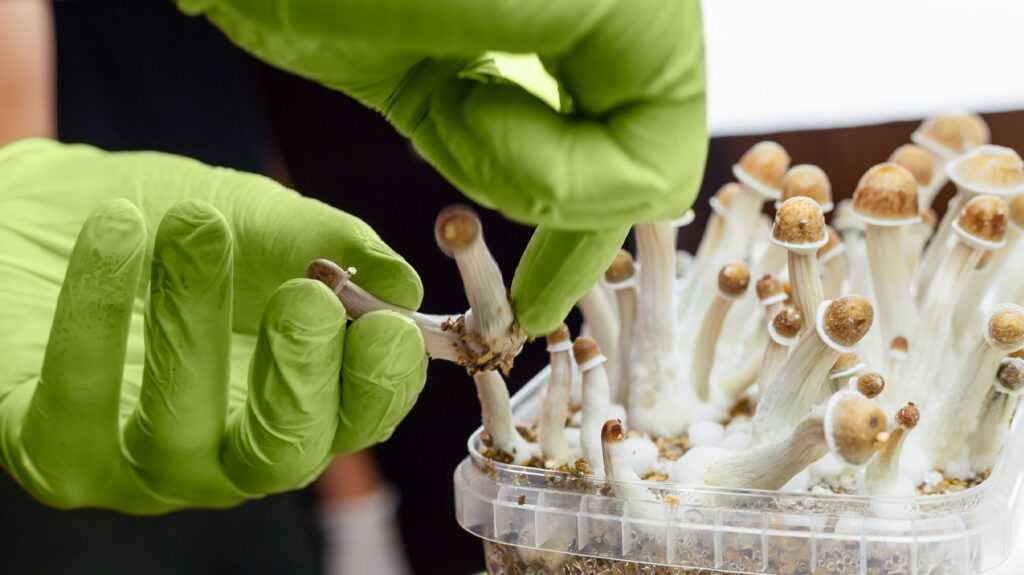Magic mushroom remedy found effective for treating depression
11 November, 2020

In a tiny clinical trial, patients with major depressive disorder (MDD) who were given two doses of psilocybin along with psychotherapy showed a decrease in depressive symptoms. The psychedelic’s therapeutic effects persisted for 4 weeks with reduced side effects.
Psychedelics are recognized for their hallucinogenic properties, but their mind-altering effects could also benefit people with depression.
In line with the National Institute of Mental Health, about 17.3 million adults in America have observed at least one depressive episode.
Currently, the gold standard for treating MDD is psychotherapy or antidepressant medication. A 2014 study in World Psychiatry found that psychotherapy coupled with antidepressants was more effective compared to the former alone.
Replacing antidepressants with hallucinogenic mushrooms
New antidepressants are ketamine-like drugs that show a high therapeutic response. A 2014 meta-analysis in Psychopharmacology reports that roughly 0.5 milligrams per kilogram of ketamine effectively reduced depressive symptoms. These effects also lasted 2-3 days after treatment. However, there are some drawbacks.
While currently approved by the Food and Drug Administration (FDA), there are a few short-term unwanted effects to consider when working with ketamine, such as for example feeling strange or bizarre, numbness, and difficulties speaking.
Ketamine includes a high liability for craving and may have a big prospect of abuse. A 2018 study in Neurobiology of Stress discovered that repeated low-dose ketamine treatments for treatment-resistant depression led to cognitive impairments and potential for abuse.
To avoid people abusing their medication, alternative treatments to aid psychotherapy are needed - enter psilocybin.
There is growing evidence of psilocybin’s antidepressant properties. A report in the Journal of Psychopharmacology demonstrateda single psilocybin dose that produced an antidepressant and anxiolytic response in cancer patients, which lasted for 5 years.
Weighed against ketamine, psilocybin has lower addictive properties, which would be beneficial as a potential add-on for current treatments. However, clinical research evaluating it in combination therapies is bound.
Recently, researchers at Johns Hopkins University published articles contributing to the study investigating the potency of psilocybin-assisted remedy for depression.
“These data expand the findings of previous studies involving patients with cancer and depression, together with patients with treatment-resistant depression, by suggesting that psilocybin may be effective in the much bigger population of MDD,” write the analysis authors.
Johns Hopkins clinical trial
From August 2017 to April 2019, the researchers of the current study recruited adults with MDD who weren't taking antidepressant medications and had no history of psychotic disorder, suicide attempts, or hospitalizations. The scientists randomly assigned a complete of 24 participants to an instantaneous or a delayed treatment group.
The psychedelic-assisted remedy lasted for eight weeks, with 18 in-person visits and 2 days for psilocybin treatment.
Participants in the immediate treatment group began the psilocybin treatment during an 11-hour supportive psychotherapy session. The researchers allowed for a 1.6-week break between your first and second doses. On the other hand, the delayed treatment group waited eight weeks before receiving psilocybin-assisted therapy.
Decrease in severity of depression
At the time of enrollment, participants had a score of 23 in the GRID-Hamilton Depression Rating Scale (GRID-HAMD), which indicates moderate depression. After a 1-week and 1-month follow-up, participants in the immediate treatment group dropped to a score of 8, indicating mild depression.
In the complete cohort, 67% reduced the severe nature of their depressive symptoms 1 week after psilocybin treatment. This percentage grew to 71% when researchers followed up after four weeks.
After 1 week, the researchers discovered that 58% of the cohort were no more classified as clinically depressed. By week 4, they discovered that 54% of the participants were no more classified as depressed.
Limitations from the clinical trial design
Several limitations exist that could challenge the usefulness of the analysis results. The study had insufficient minority representation, as recruitment leaned towards non-Hispanic whites.
That is important because while white people typically report more cases, the American Psychiatric Association remember that Black and Hispanic Americans will experience depression for more extended periods. In response, the researchers acknowledge the necessity for future studies to validate this proof of concept in more representative populations.
The study also fails to address the long-term ramifications of psilocybin treatment. Unlike the investigation on cancer patients, which had a 5-year follow-up, the existing research followed up after only one 1 month.
There have been also variables in the study design that could question psilocybin’s effectiveness as an antidepressant drug. One originates from too little a placebo group. Placebos are crucial in identifying whether a person truly benefitted from the drug rather than from outside factors. Because of this, the safety of using psilocybin remains unknown.
Final thoughts
Overall, the authors find their clinical trial supports the use of psilocybin-assisted remedy for MDD.
“Although the rapid antidepressant effects of psilocybin are similar to those reported with ketamine, the therapeutic effects are different. Ketamine effects typically last for a couple days to 14 days, whereas the existing study showed that clinically significant antidepressant response to psilocybin remedy persisted for at least four weeks, with 71% of the participants continuing showing a clinically significant response (≥50% decrease in GRID-HAMD score) at week 4 of follow-up.”
Source: www.medicalnewstoday.com
TAG(s):
